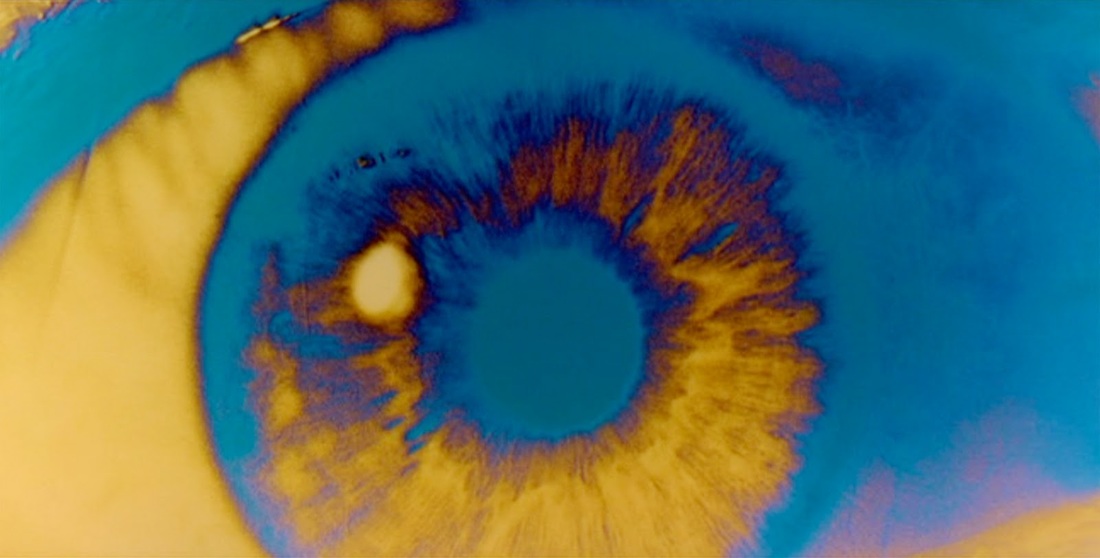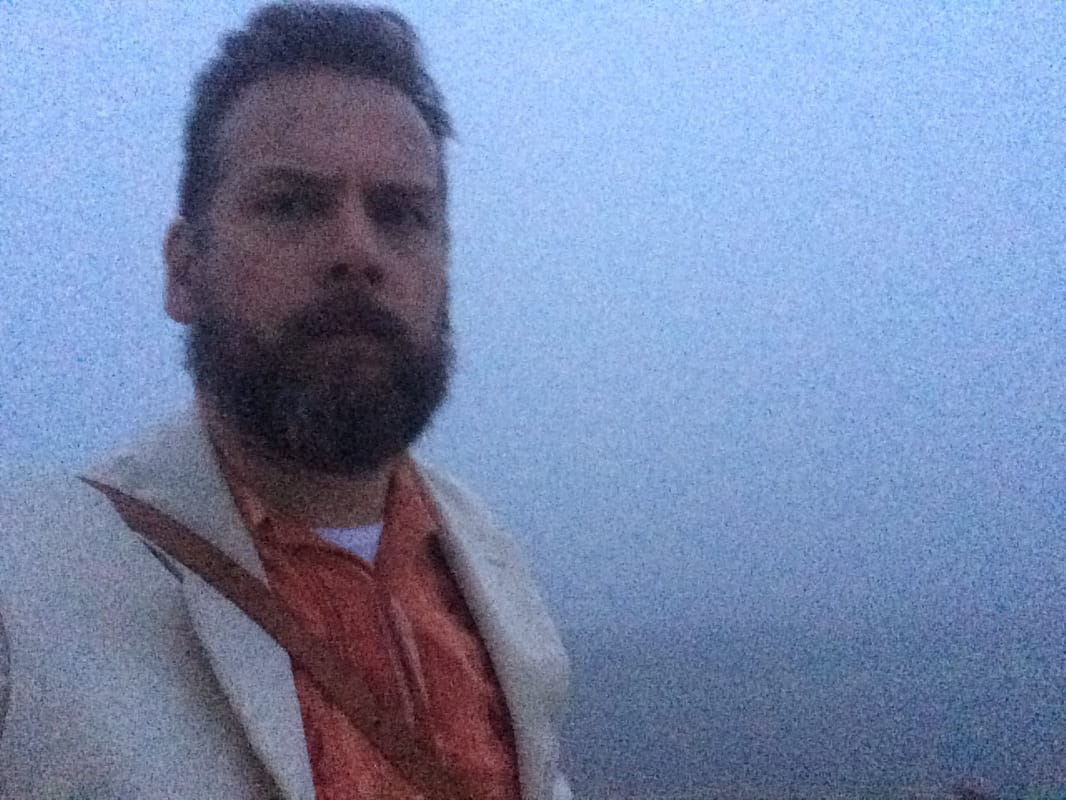|
About two years ago we went to Treviso. It was late and dark and it was difficult to find the clinic. We paid three thousand Euros and then I was led to a small room where a nurse put drops in my eyes and asked if I had brought some sunglasses. I had. We waited for five minutes. There was another patient, a woman who was waiting too, but I was first. Another nurse came along and asked me to come into a large cold room, with radiation warnings on the doors and a bed and some machinery from Flash Gordon. The doctor I had seen for the test recalled I was a teacher and called me 'professore' all the way through. I liked this because I got the feeling he liked me and would give me preferential treatment. For some reason I imagined he would botch other less middle class patients as a matter of course.
I lay on the couch and they put my head in clamps. Everything became very Kubrickian at this point. The two doctors spoke about politics and the latest scandals that were sweeping the government. I liked the fact that the doctors also seemed to share my own political outlook. Once more imagining it might effect my treatment in a beneficial way. 'Now professore, we're going to do a bit of scraping, it won't hurt but don't move,' my doctor said. So they scraped my eyeball. And I had to watch as they did it. Looming over me, upside down which was disconcerting as well, with the knife, or whatever it was, blunt spoon... I don't know. Once the scraping was done the laser was positioned and I was instructed to look into the light and not move, something that I couldn't do anyway because of the clamps. A whining began and a throbbing. My vision changed in a psychedelic way. Now we were no longer in Clockwork Orange, we were in 2001: A Space Odyssey going through the monolith, the star gate. My vision went green, crimson, lilac, yellow and then normal browns and grays. Very strange. And now for the next eye. Halfway through that treatment I began to smell something. Something burning. I realized the smell was my eye burning. That's what it was. I suppressed an urge to scream at the top of my lungs and tear at my face and my doctors, smashing their heads to pieces and running from the clinic into the night. But it was painless and the moment passed. And then it was done. The nurse took me back to the waiting room and told me to put my sunglasses on. Then I went to a room with a policeman - a caribiniere - who administered a brief eye test and changed my driving license to say that I could drive without glasses. Unable to read or watch television, I lay in the darkness in my bedroom listening to Lewis Black in concert. He was very funny and his anger helped me. It took me about a week before everything went back to something like normal. I no longer needed glasses. It took me over a year to get used to waking up and not automatically slapping the bedside table in search of my specs. I went swimming and could see. I walked in the rain and looked up and saw the rain falling without the trickles, and condensation on the windscreens in front of my eyes. I had worn glasses since I was about eight. I always had the suspicion that I had faked my eye test in order to get glasses, believing them to be a prize that if you passed your eye test you didn't win. Glasses were free in those days. The NHS gave you a choice of colours but they were always the same kind of frame. I wore them all the time and would break them constantly. No one seemed to mind and I would get new ones regularly. If I didn't have them I would sit as close as possible so I could see the board. Not seeing was something I was good at and I would spend months without my glasses and when I got a new pair I was always knocked out at seeing the world again. I sat in the dining room and looked out at the green grass of the garden and marveled that I could see every blade of grass, every stone in the gravel, every wave in the distant bay. Chances are the lenses were too strong. When I was at university, I experimented as most students do with the doors of perception. In my case, contact lenses. They were fiddly and irritating and I hated the fact that I couldn't just fall asleep whenever I wanted too, but they at least freed me from having glasses on, especially now that the frames had to be bought and paid for and worse still, chosen. I had some bad specs in those years and the contact lenses helped a lot. When I got married, I wore contact lenses but we went to a hotel after the wedding and I didn't have the lenses case so I put them in two glasses of water, careful that I remember left and right, and then woke up in the middle of the night with a powerful hungover thirst and drank both of them down in two gulps before collapsing asleep once more. Everyone the next day thought this by far the funniest thing they had ever heard and my reputation in the village as a complete dolt was sealed. After the laser treatment I was supposed to go back for a check up, but I never got round to it. My eyesight isn't great. My eyes are sometimes dry and I use drops. When I'm tired or if the lights inside are fluorescent I find it difficult to focus. I'm constantly checking my eyesight against that of other people. 'Can you read that sign over there? Okay what about the one further along?' I'm still amazed when I can see things. And I'm also amazed when it rains hard and the next morning you can count the leaves on the trees on the other side of the valley. Seeing has never been something I've taken for granted and the weirdness of it is something I am constantly aware of, drawing my own attention to. One of my main passions - the cinema - is all about watching, and the quality of watching, the fall of the light, the texture, the depth of field. It's funny but also deep when I find myself looking at the world as though it were a composition, framed and poised, the colours just so for a reason. The level of detail... Is this HD?, looking out of a window. I don't think I see properly now that I've had the treatment. Two years have gone by waiting for my eyesight to settle into something I could think of as 20-20. But it doesn't matter. As I age chances are I'll end up wearing glasses again, perhaps only to read, but who knows? It doesn't matter. In the end we'll see.
0 Comments
Leave a Reply. |
AuthorJohn Bleasdale is a writer. His work has appeared in The Guardian, The Independent, Il Manifesto, as well as CineVue.Com and theStudioExec.com. He has also written a number of plays, screenplays and novels. Archives
March 2019
|

 RSS Feed
RSS Feed


